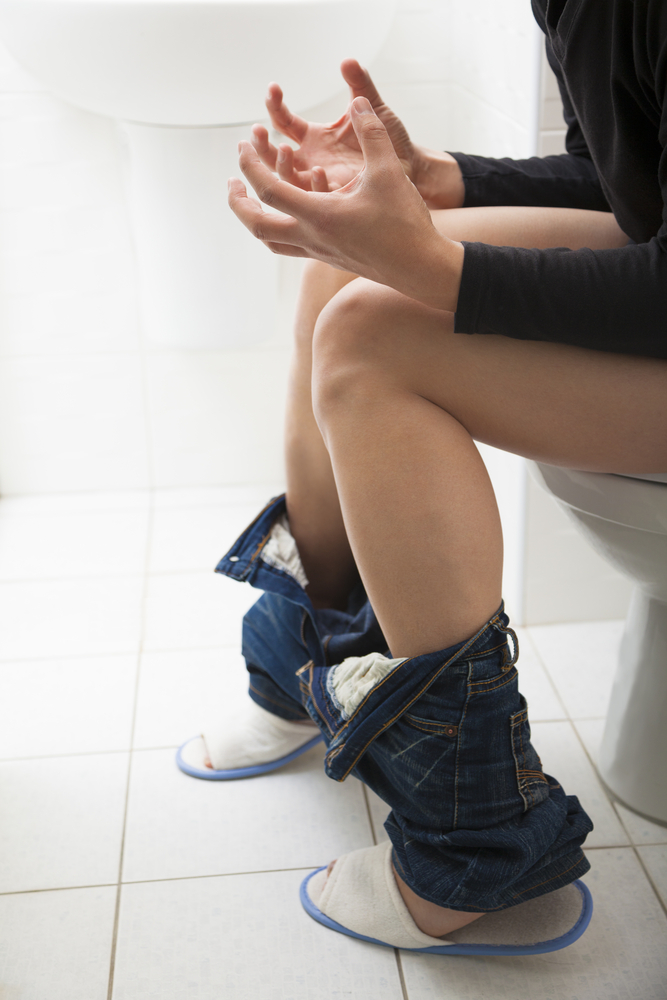Today, we’re going to talk about constipation.
Exciting, right?
Sure, it’s not something you sit around and discuss with your friends.
…but, the associated taboo is precisely the reason even the chronically afflicted are too embarassed to seek help when the plumbing gets clogged.
Statistics show that about 15% – 20% of the “community-dwelling elderly population” is constipated, and in nursing homes that figure can be as high as 50% (1).
To be fair, it isn’t just because people are shy either. Many just don’t realize there’s a problem.
With so much of the population in poor health, it isn’t uncommon for a person to have a misguided concept of what’s “regular”.
And considering that “experts” can’t even agree on what a healthy human diet should include, how can we expect agreement on how often you should be passing it?
The bright side to this is that all it often takes to correct these problems are healthier lifestyle changes that put you more inline with nature.
So, How Irregular is Irregular?
In order to recognize whether or not you’re constipated, it’s first crucial to define what regularity means.
To be clear, regularity can be a bit different for everyone – when discussing bodily functions, it’s always important to recognize the difference between individuals. Just like the “best workout strategy” may vary for different people with different body structures, it’s ludicrous to come up with an exact “prescription” for regular bowel movement.
By definition, constipation is less than two or three bowel movements every week. But, the ideal picture of good health is emptying your bowels once, twice, or even three times daily.
If you aren’t at least visiting the toilet one time per day, it’s probably time to consider something is afoul.
Also, just because you aren’t always constipated doesn’t mean you’re not having a problem. You don’t have to feel constipated 100% of the time.
According to WebMD.com (2):
You are considered constipated if you have two or more of the following for at least 3 months:
- Straining during a bowel movement more than 25% of the time
- Hard stools more than 25% of the time
- Incomplete evacuation more than 25% of the time
- Two or fewer bowel movements in a week
Often, people go for years without these symptoms and begin to think of it as regular functioning…
Constipation may also include bloating or stomach pain (often indicative of irritable bowel symptoms).
The Importance of Regularity
So, why is regularity so important?
Well, the digestive process isn’t just a daily hassle you contend with – a price you pay for being human. While many cultures tend to attach a lot of stigma to the process, it’s a very natural and necessary bodily function that keeps you alive and your body running in tip top shape.
Without regular movements, toxins accumulate and stay in your bloodstream; taking a number two gets rids of these toxins. A lack of regularity can also lead to fecal impaction or hemorrhoids, and sometimes the only way to confront these problems is manual removal.
Since irregularity of bowel movements is often a symptom of something else, there’s also the issue of listening to what your body tells you. It may be something minor upsetting your natural balance, but minor problems left unchecked and unaddressed can become serious health issues over time.
The first step towards healthier toilet habits is balance, and that starts with respecting rule #1.
Rule #1: Laxatives Should Be a Last Resort
Our society is addicted to pills. We reach for them to sleep, to wake up, to cure a minor headache, and -yes- to go to the toilet.
Doctors hand them out like candy, and many of America’s elderly are on a pill regimen that would make a drug addict blush. Not because they want to be, of course, but because they’ve been told it’s a part of getting older…
But that isn’t true, and all too often, pills address the symptoms instead of the actual problem, which is a real cause for concern.
On top of that, overuse of laxatives has been known to affect your intestines, making it difficult to do their job. The end result is you’ll not only be dependent on laxatives for bowel movements but may have to take more and more for the proper effect. In other words, laxatives actually can make you more constipated, or constipated more often, in the long run.
This is a perfect case study of dependency-building here, and hopefully, this throws up a big red flag for you concerning laxatives as a shortcut to relief. To make matters worse, a lot of patients report they don’t help all that much with the constipation to begin with. Some trade-off, eh?
Laxatives can even cause tissues damage in your large intestine or damage the nerves and muscles.
If you’ve already been using them, and especially if they’re causing further problems, you should probably stop using them now. Your bowels can return to normal function on their own, but it may take some time.
What Can You Do About Your Potty Problems?
One theme you’ve probably noticed come up again and again in my articles is that the body is designed to function perfectly – WITHOUT all this cookie cutter medical intervention.
…and when you take shortcuts that ignore the very real underlying problems, you ultimately cause more damage.
In part 2 of this article, we’ll dive into the possible underlying causes of constipation and explore the powerfully effective and all-natural remedies available to bring balance back to your bowels.
We’ll talk soon!
Sources:
- http://www.ncbi.nlm.nih.gov/pubmed/15554750
- http://www.webmd.com/digestive-disorders/digestive-diseases-constipation
 Validating...
Validating... 





